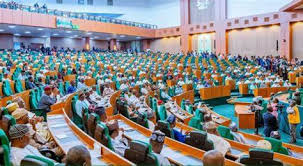Experts urge regulation of community-based vigilance groups
by Beady Nnanna ·
On Conflict and peacebuilding, experts urged the Federal Government to regulate community-based vigilant groups and fold them into formal structures to guarantee accountability and coherence.
They also called for shifting away from militarised interventions toward community-based approaches that build trust and prioritise prevention to tackle violence in north-central Nigeria.
The recommendations came during a webinar hosted by Conflict Research Network West Africa, titled “Violence in North Central Nigeria: Pathways to Peace and Human Security.”
Panellists included social entrepreneur and justice advocate Ier Jonathan-Ichaver; the Director-General of the Institute for Peace and Conflict Resolution, Dr. Joseph Ochogwu; criminologist and security studies scholar at the University of Jos, Prof Suchi Plangshak; and security governance and strategic studies expert, Prof Albert Okoli. They explored the structural, political, and social drivers of the region’s conflict.
Moderated by CORN West Africa’s Executive Director, Dr. Timipere Allison, and Director of Strategy, Partnerships and Policy Development, Dr. Gbemisola Abiola, the panellists urged bold actions to end the violence in North Central Nigeria.
Plangshak argued that the violence stems not only from armed conflict but from systemic dysfunction rooted in marginalisation, exclusion, and erosion of justice. Jonathan-Ichaver pointed to the state’s inadequate response, noting that security agencies often fail to act on early warnings and lack investigative capacity.
“There is a need for the federal government to regulate community-based vigilant groups and integrate them into formal structures to ensure accountability and coherence,” they submitted.
Okoli acknowledged the rise of community-based security groups while warning about the dangers of unregulated vigilantism. “When the state abdicates its role, non-state actors step in. But without oversight, they can become part of the problem,” he cautioned.
Ochogwu, in his contribution, noted progress in containing the violence but advocated for a more humane approach to reconciliation and peacebuilding. “We must rehabilitate victims, not just count them. Local governments need resources and autonomy to lead reconciliation efforts. Peace cannot be outsourced. It must be locally owned.”
Allison reaffirmed CORNWEST Africa’s commitment to collaborative research, policy innovation, and amplifying community voices. “I urge government actors, civil society, academia, and international partners to act decisively. Piecemeal interventions are over. What we need now is a unified, strategic response that restores dignity, justice, and peace to the people of the region.”



